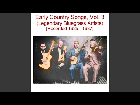The climate change narrative insists that we are all doing something wrong. The results, they say, will be catastrophic for the planet. What we are doing wrong is: activities that put carbon dioxide into the atmosphere. That all of our private and public behaviors result in carbon dioxide emissions is pretty much true, but is carbon dioxide emission the worst thing the western consumer is doing environmentally speaking?
When is the last time you heard discussion of any other form of industrial pollution? The production of EV batteries is environmentally catastrophic. Most consumer electronics carry a similar pollution cost. While activists shout for us to stop using cars, disposable consumer products continue to dominate the market.
I’m not a fan of doomers, but I am concerned that we are covering up real ecological damage with the specter of climate change. Thoughts?

Ron Unz's American Pravda Series (https://www.unz.com/page/american-pravda-series/)
Ron Unz was born in California in 1961 to Ukrainian Jewish immigrants and seems to have made a modest fortune in Silicon Valley in the 1990s (nothing near todays tech billionaires though). His "American Pravda" series of articles raises the question "what if most of the historical and political narrative of the 20th century is wrong?" Unz's himself makes the analogy of a young Russian/Eastern European researcher discovering after the fall of the Iron Curtain that most of what they had been taught and what "everybody knows" is wrong, or at least severely distorted. One would expect such a state of affairs within Soviet Communism, but could the same thing have happened in the West? Unz says: "yes."
How could this happen? Unz, through a now lengthy series of articles, argues that Western "history" has been written by Journalists and ideologically motivated academics. There's the gamergate tie in. Some of the content wasn't new to me, some of it was astonishing. I highly recommend the series.
I'm not sure which of part of the series I would recommend beginning with. Because the time period he tends to focus on is the inter-bellum period to the aftermath of WW2 you might consider one of the big ones: "American Pravda: Understanding World War II" (https://www.unz.com/runz/american-pravda-understanding-world-war-ii/). The article I found most jaw dropping was "American Pravda: Our Great Purge of the 1940s" (https://www.unz.com/runz/american-pravda-our-great-purge-of-the-1940s/).
All of his articles have an audio recording, making them pretty easy to digest.
I am curious on if any of you have read Paul Feyerabend's "How to Defend Society Against Science." It's a bit of a read, but worth your time if you're interested in the role of science in society. Paul Feyerabend was a philosopher of science and often asked the sorts of questions that pissed of academics like Lawrence Krauss and pop-sci guys like deGrasse Tyson. There is a great deal in this essay I don't agree with, but it makes a proper mockery of those who literally say "follow the science".
PDF link below after a couple of excerpts.
For example, consider the role science now plays in education. Scientific "facts” are taught at a very early age and in the very same manner in which religious "facts” were taught only a century ago. There is no attempt to waken the critical abilities of the pupil so that he may be able to see things in perspective. At the universities the situation is even worse, for indoctrination is here carried out in a much more systematic manner. [...] Do not be misled by the fact that today hardly anyone gets killed for joining a scientific heresy. This has nothing to do with science. It has something to do with the general quality of our civilization. Heretics in science are still made to suffer from the most severe sanctions this relatively tolerant civilization has to offer.
"Truth" is such a nicely neutral word. […] So it is easy to twist matters and to change allegiance to truth in one's everyday affairs into allegiance to the Truth of an ideology which is nothing but the dogmatic defense of that ideology. And it is of course not true that we have to follow the truth. Human life is guided by many ideas. Truth is one of them. Freedom and mental independence are others. If Truth, as conceived by some ideologists, conflicts with freedom, then we have a choice. We may abandon freedom. But we may also abandon Truth. […] My criticism of modern science is that it inhibits freedom of thought. If the reason is that it has found the truth and now follows it, then I would say that there are better things than first finding, and then following such a monster.
Edit: PDF link to scan of original article: https://www.radicalphilosophy.com/article/how-to-defend-society-against-science

